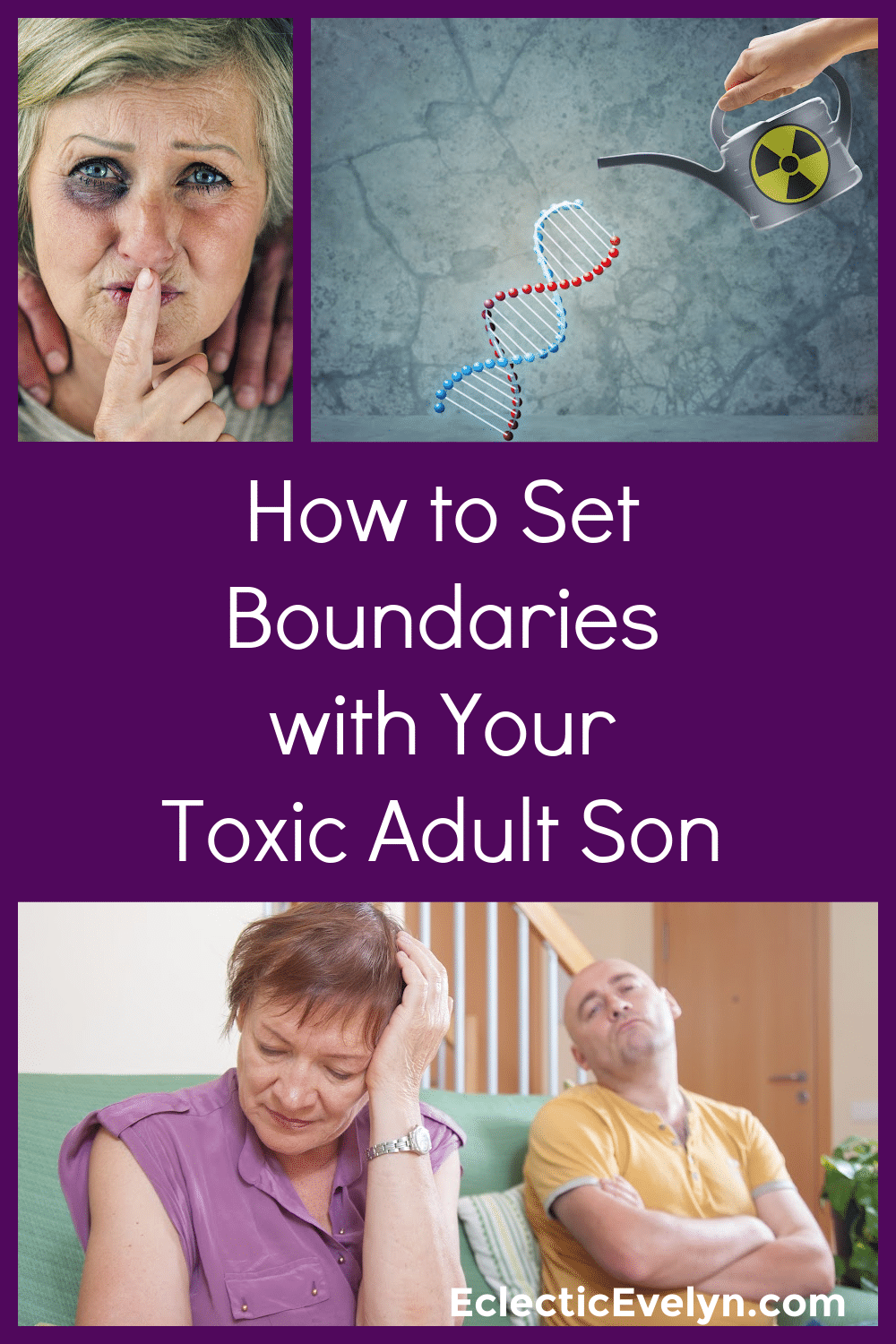Parenting is a challenging journey filled with love, joy, and sometimes difficult decisions. Setting boundaries and cutting ties with a toxic adult son, particularly a son who exhibits behaviors reminiscent of an abusive father, is an incredibly painful situation for any parent to face. However, the well-being and emotional health of the entire family, including the parent, must be prioritized.
In this article, we will explore steps for setting boundaries and potentially cutting ties with your toxic adult son. It’s crucial to approach this process with sensitivity and a deep understanding of the complexities involved. While it’s heart-wrenching to confront such a situation, recognizing the impact of toxic behaviors on the family dynamic is essential. This includes acknowledging the parallels between his behavior and patterns exhibited by an abusive father figure. By addressing these issues head-on, you can create an environment that fosters growth, healing, and positive change.

Recognize the Signs of a Toxic Adult Son
The first step in addressing a toxic relationship is to recognize the signs of unhealthy toxic behavior. This may include manipulation, trying to control you, gaslighting, verbal or physical abuse, constant criticism, blatant disrespect, or a lack of empathy. If your son exhibits these patterns, it’s crucial to acknowledge the situation and understand the impact it has on your own mental and emotional well-being.
Prioritize Self-Care
Caring for yourself is essential when dealing with a toxic adult son. Set aside time to focus on your emotional needs, seeking support from friends, family, or professionals. Engage in activities that bring you joy, practice self-compassion, and remember that your happiness matters too. By prioritizing your self-care, you can better navigate the challenging path ahead.
Seek Professional Guidance
Toxic relationships within families are complex, and seeking professional guidance from therapists or counselors specializing in family dynamics and domestic violence can be invaluable. They can provide an objective perspective, validate your experiences, and offer strategies for setting healthy boundaries or facilitating reconciliation if appropriate.
Establish Clear Boundaries
Setting boundaries is essential for protecting your emotional well-being. Communicate your expectations and limits to your son, explaining the unacceptable behaviors and outlining the consequences for crossing those boundaries. It’s crucial to stick to these boundaries consistently to demonstrate their importance.

Practice Detachment with Love
Detaching with love means stepping back from the toxic dynamics while still holding compassion for your son. You can let go of enabling behaviors or unhealthy patterns without cutting off all communication. This approach allows you to maintain a relationship that is respectful and focused on growth, while still protecting yourself from further harm.
Consider Cutting Ties as a Last Resort
Cutting ties with your toxic adult son should be seen as a last resort when all other efforts to establish healthy boundaries and repair the relationship have been exhausted. While this decision is undoubtedly tricky, it may be necessary for your own mental and emotional well-being. Ensure you have a strong support system in place and consult with professionals before taking such a step.
Focus on Healing and Personal Growth
Regardless of the outcome, it’s crucial to focus on your own healing and personal growth. Engage in therapy, support groups, or self-help resources that can aid in your journey toward emotional recovery. By investing in your well-being, you can foster resilience and create a positive environment for personal growth.

Dealing with a toxic adult son who echoes the abusive behaviors of a father is an incredibly challenging experience for any parent. However, by recognizing the signs of unhealthy toxic behavior, prioritizing self-care, seeking professional guidance, establishing boundaries, and potentially cutting ties as a last resort, parents can navigate this difficult situation with compassion and strength. Remember, your emotional well-being matters, and by prioritizing your healing, you can create a positive environment for personal growth and potentially pave the way for future reconciliation with your toxic adult son.





